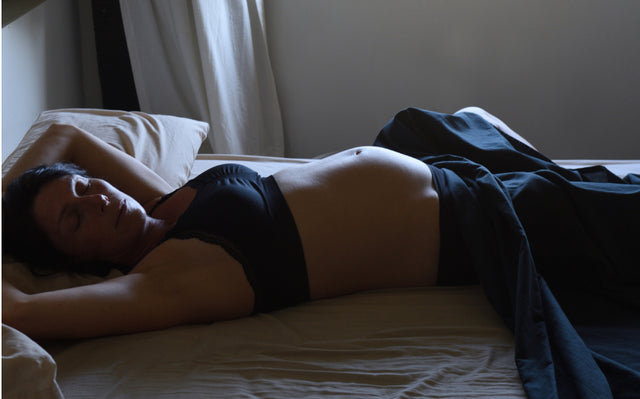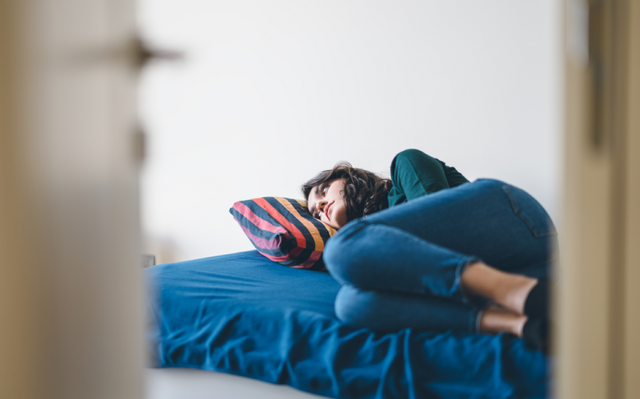Better together.
Modibodi and Plan International Australia – the charity for girls’ equality are united in being bold, breaking down taboos and empowering girls and women to manage their periods safely and with dignity. After a successful pilot program in Indonesia last year, we’re proud to announce that we’ve joined forces again, to improve menstrual health outcomes for girls and women in Laos.
Periods are a natural and normal and part of daily life, but for many they are also a source of stress, shame and stigma. Among many communities, cultural beliefs perpetuate the idea that menstruation is taboo. For schoolgirls, this can translate into schools not providing rubbish bins in toilets to dispose of sanitary products, which impedes girls’ ability to go to school and receive an equal education.
It also impacts girls’ knowledge and understanding about menstruation. Plan International UK reported that 48% of teen girls in the UK were embarrassed by their periods, 14% didn’t know what was happening to them when their first period started, and 26% didn’t know what to do to manage their period.
What is period poverty?
Put simply, period poverty is not having access to products to manage your menstrual cycle, either because the topic is taboo in your community or you can’t afford to buy them.
The shocking reality is that many women and girls are forced to use makeshift items such as rags, newspapers, sarongs or toilet paper to absorb their period because they don’t have access to, or can’t afford period underwear, pads or tampons. This can lead girls and young women to avoid school and social activities out of shame or embarrassment during their period.
Lack of education, taboos, stigma around periods, poor sanitation infrastructure and financial circumstances are all factors which contribute to period poverty. It is a global health issue which reinforces gender inequality, increases hardship and causes women and girls to miss out on education, work and social activities.
Modibodi X Plan International Australia
In 2020 Modibodi and Plan International Australia teamed up to supply 300 women in the Indonesian province of West Nusa Tenggara with 1000 pairs of reusable period underwear. And now, we’re teaming up again to improve menstrual health outcomes for girls and women in Laos.
This new initiative forms part of our menstrual hygiene program, and will see us deliver 22,000 pairs of Modibodi period underwear to 4,400 girls and women in the Saravan and Oudomxay provinces of Laos. This donation will enable girls to go to school (and be able to change their underpants if necessary and store the used pair in the waterproof bag), and to reduce local waste.
Our work together will ensure thousands of girls and women in Southeast Asia can access safe and sustainable period products, live free from period stigma and participate more fully in daily life – including their education!

Period poverty by the numbers
- At least 500 million women and girls lack a private place to change their sanitary protection during menstruation. [1]
- 2.3 billion people globally lack basic sanitation services – like flushing toilets[2]
- Almost half of girls and women Plan International Australia surveyed in the Pacific (40%) said they had trouble finding facilities for changing and disposing of period products safely, privately and hygienically.
- Plan International Australia found one in three girls and women surveyed in the Pacific (30%) said that period products had become harder to find during the pandemic.
- In Ethiopia, half of girls miss school every month during their periods[3]
- Only 12% of India’s 355 million menstruating women use sanitary products during their periods [4]
- Plan International UK reports that 10% of girls in the UK can’t afford menstrual products, with 12% improvising by ‘taping toilet paper’ or ‘wrapping socks’ around their underwear due to affordability issues
- A 2018 survey in the UK claimed 137,700 girls in the UK missed school in 2017 because they couldn’t afford sanitary items. That survey also found that 55% of teachers were aware of girls in their school being unable to afford sanitary products.[5]
- UNESCO reports 10% of African girls quit school because of menstruation-related issues
“Modibodi and PIA both have a shared belief in the importance of tackling taboos around menstruation and addressing period poverty to improve opportunities for girls to live their best lives and participate in work, school and all activities.
PIA has the resources and knowhow to identify where our sustainable leak-proof underpants will have the greatest impact to improve the lives of those who are genuinely in need, and to help improve attitudes and education around menstruation for girls, boys and parents in remote communities. We can’t wait to see the impact of this initiative in action, and we’ll continue to seek opportunities to work together towards our shared goals in the future.”
— Modibodi founder and CEO, Kristy Chong
[1] https://www.worldbank.org/en/news/feature/2018/05/25/menstrual-hygiene-management#:~:text=At%20least%20500%20million%20women,obstacle%20to%20women%20and%20girls.
[2] https://www.oxfam.org.au/what-we-do/emergencies/water-sanitation-and-hygiene/#:~:text=2.3%20billion%20people%20lack%20access,diarrhea%20caused%20by%20dirty%20water.
[3] https://www.unicef.org/ethiopia/media/3096/file/MenstrualHygieneManagementinEthiopia.pdf
[4] https://opportunity.org.au/news/blog/2020/05/period-poverty
[5] https://www.independent.co.uk/news/international-women-s-day-period-girls-missed-school-uk-sanitary-products-menstruation-a8244396.html






